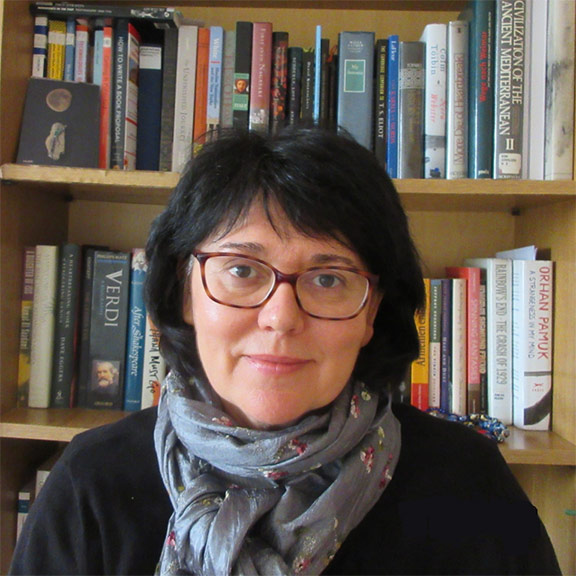
The American University of Armenia (AUA) Acopian Center for the Environment is hosting its first Fellow, Dr. Christine Sturm, who will focus her work on sustainable energy issues. The term of her fellowship started in September 2018 and will end in April 2019.
Dr. Sturm brings to Armenia her many years of professional experience and her PhD research on Germany’s energy transition, Energiewende. Her career started in 1984 at the Institute for Chemical and Biochemical Energy in Bucharest. She coordinated a pilot project for coal gasification from planning to operation. Then, in 1987, she worked in Romania’s Electricity and Heat Generation planning department, which optimized Romania’s power plants.
Between 1992 and 2004 she worked in the central energy departments of large and energy-intensive paper manufacturers (Stora Feldmuehle AG, Duesseldorf; Haindl Papier GmbH, Augsburg; UPM Kymmene OY, Augsburg). At these manufacturers, she was responsible for developing new power plant concepts and energy procurement.
In the late 1990s and early 2000s, while working for Haindl Papier GmbH, she led negotiations for the deregulation of the German gas market on behalf of the Federal Association of Germany’s Industry (BDI) and the Association of Large Industrial Energy Consumers (VIK).
From 2004 to 2016 she held several high-level management positions within the renewable energy arm of RWE, one of Germany’s largest utility companies. She led various departments including Energy Management, Feedstock Management, and Fuel and Disposal Management.
While working at RWE, Dr. Sturm enrolled in Arizona State University’s School of Sustainability and was awarded her Ph.D. in May 2018. She intended to use her experience in the energy sector to analyze Germany’s energy transition and why it failed to achieve its decarbonization goals. The Ph.D. research allowed her to set her broad experience with the Energiewende within relevant academic literature and analytic frameworks.
Her research and dissertation focus on problems related to Germany’s energy transition and the lessons political and industrial decision-makers could learn to pursue more successful methods of decarbonization.
